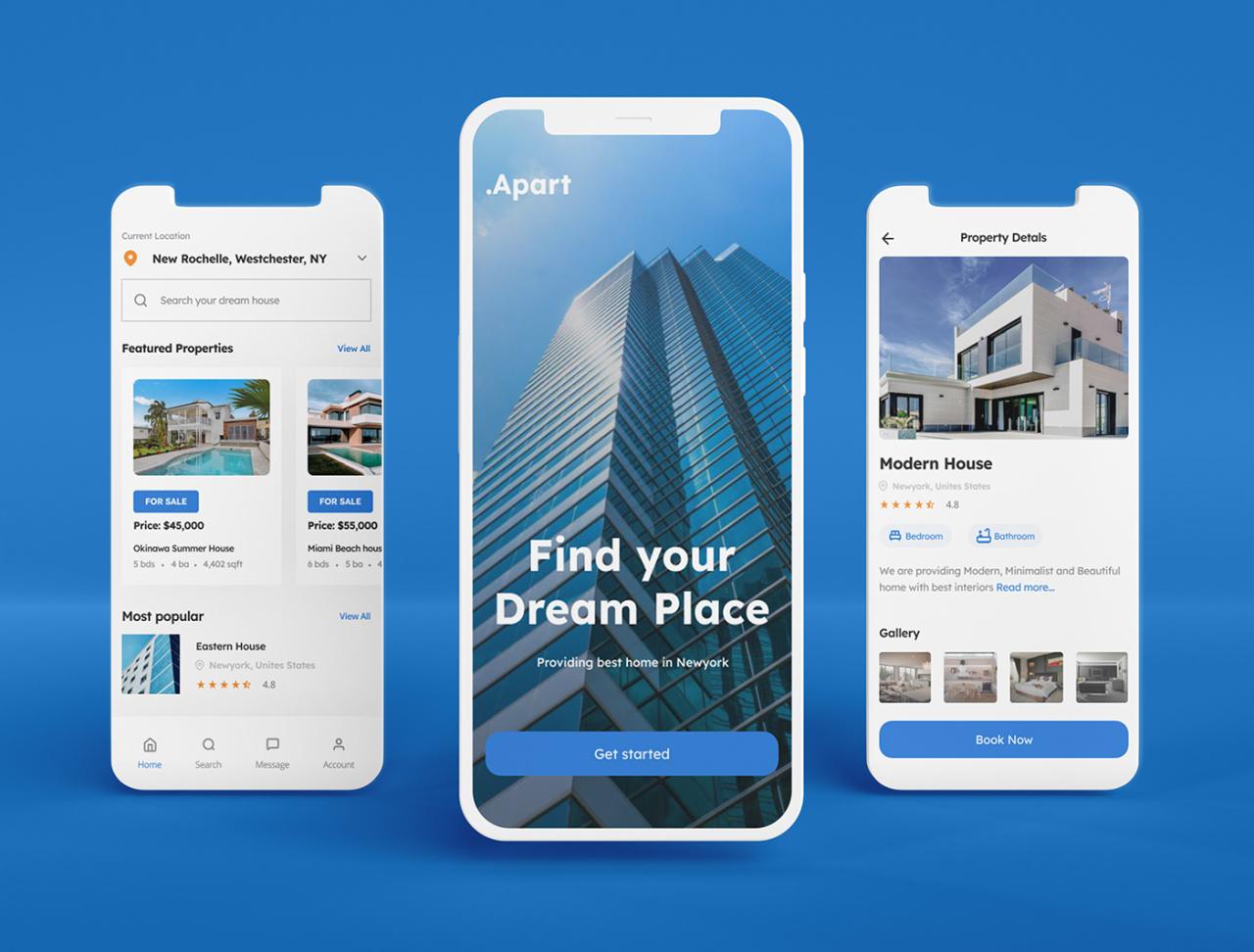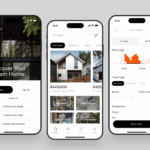Easy to use real estate software for mobile home listings opens up a world of possibilities for both sellers and buyers, transforming how we navigate the housing market. In an industry where efficiency and accessibility are paramount, this software stands out by offering user-friendly features designed specifically for mobile home listings. Imagine managing your listings seamlessly from your mobile device, gaining instant access to essential data, and enhancing the overall user experience—this is the future of real estate.
With innovative tools at your fingertips, you can streamline your listing process, making it not only simpler but also more effective. By harnessing the power of technology, real estate professionals can focus on what truly matters—connecting with clients and closing deals. The ease of use and mobile accessibility of this software truly revolutionizes the way mobile homes are listed and sold, paving the way for a successful real estate journey.
Overview of Real Estate Software for Mobile Home Listings
In the fast-paced world of real estate, especially with mobile homes, having the right software can make all the difference. This software not only streamlines the process but also enhances productivity and efficiency, allowing agents to focus more on closing deals rather than juggling spreadsheets and chaotic listings.The importance of using real estate software for managing mobile home listings cannot be overstated.
With a variety of listings to handle, software solutions provide a centralized platform that simplifies tasks such as tracking properties, managing contacts, and scheduling showings. Moreover, user-friendly features are essential in ensuring that agents, regardless of their tech-savviness, can navigate the platform with ease.
Features of User-Friendly Real Estate Software
To make the most out of real estate software, several key features contribute to its user-friendly nature. These elements not only enhance the user experience but also facilitate effective management of mobile home listings:
- Intuitive Interface: A clean and straightforward design allows agents to quickly learn the system and navigate through listings without confusion.
- Search and Filter Options: Powerful search functionalities enable users to easily find specific mobile homes based on various criteria like price, location, and amenities.
- Mobile Compatibility: Mobile-responsive design ensures that users can access the software from their smartphones or tablets, making it convenient for on-the-go management.
- Real-Time Updates: The ability to receive immediate updates on listings, inquiries, and changes allows agents to stay informed and respond swiftly.
- Integrated Communication Tools: Built-in chat or messaging features help facilitate communication between agents and clients, reducing the need for multiple platforms.
Benefits of Mobile Accessibility
The shift toward mobile accessibility in real estate software for mobile homes has transformed how agents operate. This feature provides significant advantages that enhance overall productivity and responsiveness.Being able to manage listings from mobile devices means agents are no longer tethered to their desks. They can update listings, respond to client inquiries, and schedule appointments while out in the field.
This flexibility is crucial in today’s fast-moving market where timing is everything.
“The ability to access real estate software anytime, anywhere is a game-changer for agents, allowing them to seize opportunities as they arise.”
This mobile access also aligns with the lifestyle of many younger buyers and sellers who prefer to handle transactions and communications through their smartphones. With this shift in consumer behavior, real estate software tailored for mobile home listings needs to cater to the demands of a tech-savvy audience while maintaining simplicity and effectiveness.
Key Features to Look for in User-Friendly Software

When diving into the world of mobile home listings, user-friendly software plays a pivotal role in streamlining operations and enhancing productivity. The right tools can make all the difference in managing listings, communicating with clients, and closing deals swiftly. This section highlights essential features that elevate usability, making it easier for users to navigate and utilize mobile home listing platforms effectively.
Essential Features for Usability
To ensure the software meets the needs of users, it should incorporate features that simplify tasks and enhance overall experience. Here are the key components to consider:
- Intuitive Dashboard: A clean and well-organized dashboard allows users to access important features quickly without feeling overwhelmed. For instance, when users log in, they should immediately see their active listings, notifications, and quick links to recent activities, resulting in a smooth workflow.
- Search Functionality: Advanced search options enable users to filter listings by various criteria, such as price, location, and size. This feature allows agents to find properties matching their clients’ preferences efficiently and improves the overall user experience.
- Mobile Responsiveness: With more users accessing software on mobile devices, having a responsive design ensures that users can manage listings on-the-go, adapting seamlessly to different screen sizes without sacrificing functionality.
- Simple Navigation: Clear menus and straightforward pathways to access features minimize user frustration. For example, having a sidebar that categorizes functions such as “Add Listing,” “Edit Profile,” and “Contact Clients” can enhance ease of use.
Examples of Intuitive Interfaces
An intuitive interface can significantly reduce the learning curve for users. Examples of such interfaces include:
- Drag-and-Drop Listing Creation: Users can easily create listings by dragging images into designated areas and filling out necessary details in a user-friendly form. This method not only saves time but also makes the listing process more engaging and less daunting.
- Visual Property Maps: Interactive maps that visually display property locations enhance user experience. Users can click on different areas to see available listings, providing a geographical context to their searches.
- Integrated Communication Tools: Built-in messaging systems or chat features allow users to communicate directly with clients or team members, fostering collaboration without leaving the software platform.
Customization Options
Customization is crucial in allowing users to tailor the software to fit their unique workflows. Here’s how customization can be implemented effectively:
- User Profiles: The ability for users to create personalized profiles that save their preferences, such as frequently used filters or favorite listings, enhances the software’s usability and speeds up processes.
- Customizable Reports: Users should be able to generate reports that reflect specific data points or metrics relevant to their business needs. For example, tailoring sales reports to display metrics relevant to mobile home listings helps agents track performance accurately.
- Themes and Layout Adjustments: Offering users the ability to change themes or adjust layouts can make the software more appealing and comfortable to use. Whether it’s altering colors or rearranging sections, customization keeps the user engaged and satisfied.
Comparison of Popular Real Estate Software
When it comes to navigating the world of mobile home listings, having the right software can make all the difference. In this fast-paced market, choosing user-friendly tools is crucial for both seasoned realtors and new entrants. We’ll delve into a comparison of popular real estate software tailored for mobile home listings, focusing on their ease of use and unique features.Several software options stand out in the crowded real estate market.
Let’s explore how they compare on various fronts, including user interface, functionality, and customer support.
Comparison Table of Real Estate Software
Here’s a quick glance at some of the notable software solutions available:
| Software Name | Ease of Use | Features | Pricing |
|---|---|---|---|
| HomeSnap | Very Easy | Integrated MLS, Listing Alerts | Monthly Subscription |
| Zillow Premier Agent | Easy | Lead Generation, Analytics | Commission-Based |
| Realtor.com | Moderate | Property Insights, Market Trends | Monthly Subscription |
Pros and Cons of Leading Software Options
Understanding the strengths and weaknesses of each platform helps users make informed decisions. Here’s a breakdown: – HomeSnap
Pros
Extremely user-friendly interface.
Real-time property updates and MLS integration.
Strong mobile app functionality.
Cons
Limited advanced analytics features.
- Monthly fees can add up for larger teams.
- Zillow Premier Agent
Pros
Effective lead generation tools.
Robust analytics to track performance.
Popular platform with high visibility.
Cons
Pricing is commission-based, which can be expensive.
- Requires a learning curve for advanced features.
- Realtor.com
Pros
Comprehensive market insights and property statistics.
User-friendly for both agents and buyers.
Offers marketing tools to reach potential clients.
Cons
Interface can be less intuitive compared to others.
Monthly fees may not justify the features for small operations.
User Testimonials on Ease of Use
Real users often provide the best insights into software capabilities. Here are some testimonials from real estate professionals:
“HomeSnap transformed how I manage my listings. The interface is so intuitive that I can train my new team members in minutes!”
“Zillow Premier Agent helped me generate leads I never thought possible. Although it took some time to learn the analytics, the payoff has been immense.”
“Using Realtor.com has been straightforward, but I wish the navigation was more user-friendly. Still, the insights are invaluable for closing deals.”
In conclusion, selecting the right real estate software requires careful consideration of various factors, including ease of use, features offered, and user feedback. By comparing popular options, agents can choose the best tools to enhance their business operations and better serve their clients in the mobile home market.
Integrating Mobile Home Listings with Other Tools
In the fast-paced real estate market, integrating mobile home listing software with other tools is essential for streamlining workflows and enhancing productivity. By connecting various platforms, real estate agents can manage their listings more effectively, ensuring that they stay organized and responsive to client needs.Mobile home listing software can seamlessly connect with customer relationship management (CRM) tools, which is vital for tracking leads and maintaining customer communication.
This integration allows agents to easily access client information, manage interactions, and follow up on potential sales without switching between different systems.
Integration Options for Enhanced Functionality
The integration capabilities of mobile home listing software can significantly enhance its functionality. Here’s a breakdown of various platforms that can be integrated to maximize efficiency and effectiveness:
- CRM Tools: Popular CRM platforms like Salesforce, HubSpot, and Zoho can be integrated with mobile home listing software to manage leads, automate follow-ups, and analyze customer behavior.
- Email Marketing Services: Tools such as Mailchimp and Constant Contact can be linked to send targeted email campaigns for new listings, open houses, and market updates.
- Social Media Management: Integrating with platforms like Hootsuite or Buffer enables agents to schedule and post listings directly on social media, broadening their reach to potential buyers.
- Accounting Software: Systems like QuickBooks or FreshBooks can help in tracking commissions, expenses, and overall financial health, ensuring agents can focus more on sales.
- Website Builders: Integration with services like WordPress or Wix allows for the direct display of listings on an agent’s website, enhancing visibility and attracting traffic.
Integrating these tools not only saves time but also helps maintain consistency across all channels. For real estate agents, having all their resources interconnected means they can focus on closing deals rather than managing multiple platforms.
“Efficiency is doing better what is already being done.” – Peter Drucker
Steps to Get Started with Real Estate Software
Getting into the groove of using real estate software for mobile home listings is a breeze when you follow some simple steps. With this software, you can streamline your listings, manage data efficiently, and connect with potential buyers seamlessly. Let’s dive into the essential steps to set up and optimize your experience.
Step-by-Step Guide to Setting Up Software
To kick things off, having a clear roadmap will help you navigate through the software effortlessly. Here’s a step-by-step guide to get you started:
- Choose Your Software: Research and select the software that fits your needs best. Look for user-friendly interfaces and capabilities that cater specifically to mobile home listings.
- Create Your Account: Sign up and create your user profile. Make sure to fill in all required fields accurately to ensure a smooth setup.
- Set Your Preferences: Customize your settings according to your business needs. This may include configuring listing categories, notifications, and user access levels.
- Import or Enter Listings: Start adding your mobile home listings. If available, use import features to transfer data from other platforms to save time.
- Explore the Dashboard: Familiarize yourself with the dashboard layout. Understanding where everything is will increase your efficiency.
- Utilize Tutorials/Support: Take advantage of the tutorials provided by the software. They’re invaluable for new users and can help you avoid common pitfalls.
Best Practices for Entering Data and Managing Listings, Easy to use real estate software for mobile home listings
Efficient data management is crucial for keeping your listings organized and accessible. Here are some best practices to consider:
- Always double-check the accuracy of the information before saving it. This includes property details, pricing, and contact information.
- Use consistent naming conventions and categories for your listings. This enhances searchability and helps keep track of multiple properties.
- Regularly update your listings to reflect the current status. Mark properties as sold or under contract to avoid confusion with potential buyers.
- Leverage features such as bulk editing, which allows you to make updates across several listings at once, saving you time and effort.
Efficient data management leads to better organization and improved customer satisfaction.
Checklist of Necessary Information Before Starting
Having all the necessary information at hand before you dive into the software can significantly streamline the setup process. Here’s a checklist of what you need:
- Property addresses and descriptions
- Pricing details and financing options
- High-quality images of the mobile homes
- Contact details for inquiries
- Marketing materials or brochures
By preparing this information in advance, you’ll save time and ensure that your listings are as effective and informative as possible from the get-go.
Case Studies of Successful Implementation: Easy To Use Real Estate Software For Mobile Home Listings
In the fast-paced world of real estate, adapting to technology can be a game-changer, especially when it comes to mobile home listings. This section delves into real-life stories of real estate professionals who embraced software solutions, showcasing their journeys and the impactful transformations that followed. One notable case is that of a small-town real estate agency in Makassar that faced significant challenges in managing their mobile home listings.
The traditional methods they relied on, such as paper-based documents and manual tracking, led to inefficiencies and missed opportunities. The agency decided to implement a user-friendly software tailored for mobile home listings, which revolutionized their workflow and client interactions.
Real Estate Agency Transformation
The agency experienced various hurdles during their transition to digital software. The primary issues included slow communication with clients, difficulty in managing listings, and a lack of integration with other business tools. By adopting a comprehensive mobile home listing software, they tackled these challenges effectively. The software provided them with an intuitive platform to manage listings and client inquiries in real-time.
Key outcomes they achieved included:
- Streamlined Communication: The software enabled instant messaging features, improving response times to client queries.
- Enhanced Visibility: Listings were automatically updated, making them more accessible to potential buyers through various online platforms.
- Data Analytics: The software offered insights into market trends, helping the agency make informed decisions regarding pricing and marketing strategies.
“Implementation of the new software led to a 40% increase in sales within the first six months, proving the effectiveness of integrating technology into our operations.”
Another successful implementation was seen in a highly competitive urban market where a real estate entrepreneur faced the challenge of standing out. By utilizing the software’s unique features like virtual tours and 3D home models, they attracted a wider audience. The visual appeal provided by the software played a crucial role in converting leads into sales.The results were striking:
- Increased Customer Engagement: Interactive listings kept potential buyers engaged for longer periods.
- Market Penetration: The entrepreneur was able to penetrate new markets, reaching clients who preferred online searches over traditional methods.
- Sales Growth: Within a year, their annual sales doubled, validating their investment in technology.
“The visual tools allowed us to showcase properties in a way that traditional listings could never achieve, resulting in faster sales and happier clients.”
These case studies illustrate the powerful impact that implementing effective software solutions for mobile home listings can have on real estate practices. With improved efficiency, greater client satisfaction, and substantial sales growth, these professionals set a benchmark for innovation in the industry.
Future Trends in Real Estate Software for Mobile Homes
The landscape of real estate software for mobile home listings is evolving rapidly, influenced by emerging technologies that promise to enhance user experiences and streamline operations. As the demand for efficient, user-friendly tools increases, understanding these future trends becomes essential for stakeholders in the mobile home market.Innovations such as artificial intelligence (AI) and machine learning (ML) are at the forefront of this transformation.
These technologies are being integrated into real estate software to improve accuracy in property listings, optimize search functionalities, and offer personalized recommendations to users. By leveraging large datasets, AI can predict market trends and assist in pricing strategies, while ML algorithms continuously learn from user interactions, enhancing the overall experience.
Emerging Technologies in Real Estate Software
Several emerging technologies are set to influence real estate software for mobile homes significantly. Recognizing these innovations can help users and developers stay ahead in the competitive market.
- Artificial Intelligence: AI systems analyze user behavior to provide tailored property suggestions, automate responses, and improve lead generation.
- Machine Learning: ML algorithms learn from historical data to enhance predictive analytics, assisting agents in making informed decisions about pricing and marketing strategies.
- Blockchain Technology: This technology can streamline transactions by offering secure and transparent records, reducing fraud, and improving trust in the buying process.
- Augmented Reality (AR) and Virtual Reality (VR): AR and VR technologies allow potential buyers to experience virtual walkthroughs of mobile homes, making remote viewing more immersive and interactive.
- Mobile Optimization: As mobile usage continues to rise, software that prioritizes mobile-friendly interfaces will be essential, allowing users to access listings and tools on-the-go.
“The integration of AI and ML in real estate software is revolutionizing how we engage with property listings, making the process smoother and more intuitive.”
Future predictions indicate that mobile home listing software will increasingly focus on enhanced user engagement through personalized experiences. For example, as AI-driven chatbots become more sophisticated, they will be able to handle more complex inquiries, further reducing the workload on real estate agents. Additionally, with the rise of IoT (Internet of Things), software may integrate smart home data into listings, offering buyers insights into energy efficiency and home automation features.Moreover, as the real estate industry becomes more data-driven, the importance of analytics in understanding market shifts cannot be overstated.
Predictive analytics will enable agents to anticipate buyer needs and adjust their strategies dynamically, ensuring they remain competitive.In conclusion, these emerging trends and technologies are set to redefine the future of real estate software for mobile homes, making it a critical area for innovation and development in the coming years.
Closure
In conclusion, embracing easy to use real estate software for mobile home listings can significantly impact the way transactions are managed and executed. With the right tools, the process becomes not just more efficient but also more enjoyable for all parties involved. As technology continues to evolve, the future promises even greater advancements that will enhance user experiences and redefine the real estate landscape for mobile homes.
Let this software be your partner in achieving success in your real estate endeavors.




